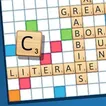










































Riddle Games: Engaging Your Mind with Puzzles and Challenges
Embarking on the adventure of riddle games is like opening a treasure chest of mental workouts, each one designed to stretch the limits of your cognitive abilities. These games are a delightful blend of entertainment and brain exercise, appealing to puzzle enthusiasts of all ages. They come in various forms, from the classic pen-and-paper brain teasers to the more modern digital escape rooms, each with its unique set of challenges that promise to captivate and educate simultaneously.
Riddle games are not just about finding quick answers; they’re about the journey of discovery, the process of applying logic, and the joy of experiencing that ‘aha’ moment when the solution clicks into place. They encourage players to think outside the box, to connect seemingly unrelated dots, and to view problems from different perspectives. This form of play is a subtle art that blends creativity with analytical thinking, leading to a satisfying sense of accomplishment upon solving each puzzle.
Moreover, these games serve as a social catalyst, bringing together friends and family in a shared quest for solutions. They foster communication and teamwork, as players often bounce ideas off one another, building on each other’s insights to unravel complex riddles. The sense of community that arises from collective problem-solving is a testament to the unifying power of these games.
In a world where screens often dominate our attention, riddle games provide a refreshing intellectual challenge that can be both grounding and invigorating. They are a testament to the enduring appeal of puzzles and the human desire to solve them. Whether you’re a seasoned puzzle master or a curious newcomer, riddle games offer a stimulating way to engage your mind and keep your cognitive skills sharp.
Games with Riddles: A Journey Through Different Genres
Games with riddles are a rich tapestry of genres, each offering a unique mental playground. Logic problems, for instance, invite players to untangle intricate puzzles through deductive reasoning, often leading to a satisfying resolution that feels like a mental victory lap. Word puzzles, on the other hand, play with language, challenging players to rearrange letters, find hidden meanings, and construct phrases that reveal the keys to their solutions.
Trivia quizzes tap into our reservoirs of knowledge, prompting us to recall facts and figures that we’ve stored away in the recesses of our memory. These games not only test our information recall but also provide a fun way to learn new facts and expand our intellectual horizons. Perception challenges, meanwhile, require a keen eye and a sharp mind, as they ask players to notice subtle differences or patterns that are not immediately obvious.
The beauty of riddle games lies in their versatility. They can be solitary pursuits, where players immerse themselves in the quiet tension of a puzzle, or they can be social experiences that bring people together in a collective effort to solve a challenge. The difficulty levels vary widely, ensuring that novices can find joy in the triumph of solving simple puzzles, while experts can grapple with complex riddles that push their cognitive limits.
Riddle games are a journey through the landscape of the mind, offering a plethora of paths that cater to different interests and skill sets. They are an invitation to step into a world where curiosity is rewarded, intellect is tested, and the joy of discovery is just a puzzle away. Whether you’re looking to sharpen your mind or simply seeking a playful diversion, games with riddles provide an engaging and enriching experience.
Online Riddle Games: Connecting Puzzlers Around the World
In the digital age, online riddle games have emerged as a vibrant hub for puzzle enthusiasts across the globe. These virtual platforms offer an endless array of riddles that challenge the mind and spark the spirit of competition. With the click of a button, players can immerse themselves in a world of enigmas, accessible anytime and anywhere, breaking down geographical barriers and connecting individuals through a shared passion for puzzles.
The online realm of riddle games is dynamic, with new challenges appearing regularly, keeping the content fresh and engaging. This constant renewal ensures that players never run out of puzzles to solve, fostering an environment where the thrill of problem-solving is perpetual. The interactive nature of these games allows for real-time collaboration and competition, adding a social dimension to the traditionally solitary pursuit of riddle solving.
Community forums and chat rooms become the virtual meeting grounds where players exchange hints, celebrate victories, and sometimes commiserate over particularly perplexing puzzles. These communities are the heart of online riddle games, where camaraderie is built on mutual respect for the craft of puzzle creation and solving. The collective intelligence of the community propels the experience forward, as users contribute their own riddles, offering new challenges for their peers.
Online riddle games also serve as a testament to the human desire for connection through shared intellectual endeavors. They create a space where age, background, and location are irrelevant, and the only currency is one’s wit and creativity. In this ever-expanding digital landscape, riddle games stand out as a beacon of collective engagement, inviting minds from all corners of the world to connect, play, and grow together.
Riddle Solving Games: Sharpening Your Cognitive Skills
Riddle solving games are more than mere pastimes; they are a form of cognitive conditioning, enhancing the brain’s ability to process information, recognize patterns, and solve problems. Engaging with these puzzles activates various parts of the brain, including areas responsible for memory and attention. As players work through a riddle, they often employ both short-term and long-term memory to piece together clues and recall relevant information, thereby strengthening these mental faculties.
The problem-solving aspect of riddle games is particularly beneficial for developing critical thinking skills. Players must analyze information, draw inferences, and make logical leaps to arrive at solutions. This process of hypothesis testing and revision mirrors scientific methods, honing a player’s ability to think methodically and creatively under pressure.
Furthermore, the diversity of riddle games ensures that they can cater to and develop a wide range of cognitive abilities. Some riddles might focus on verbal skills, requiring the solver to play with language and semantics, while others might emphasize spatial reasoning, challenging the player to visualize and manipulate objects mentally.
The cognitive benefits of riddle solving are not confined to any particular age group. For children and adolescents, these games can support learning and intellectual development. For adults, they offer a means of keeping the mind sharp and may even contribute to staving off the cognitive decline associated with aging.
In essence, riddle solving games serve as a gym for the mind, offering a rigorous workout that strengthens neural connections and promotes mental agility. By regularly challenging oneself with these puzzles, individuals can foster a more resilient and flexible intellect, better equipped to navigate the complexities of everyday life.